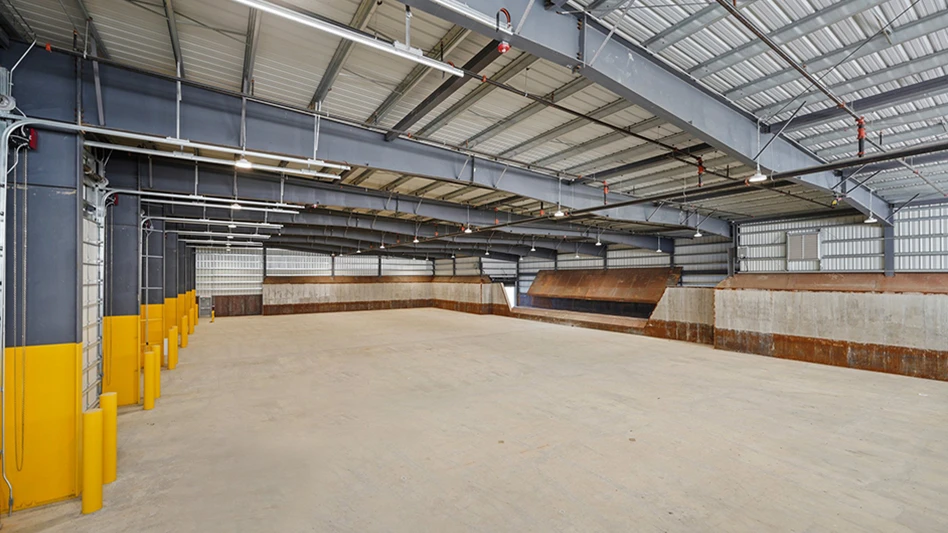
Belish | stock.adobe.com
A consortium of waste industry partners and local governments has launched the Waste-To-Energy Association (WTEA), a coalition formed to recognize waste-to-energy’s (WTE) valuable role in reducing greenhouse gases (GHG) and generating renewable energy.
WTEA members include companies and local governments served by WTE plants, as well as those who work in the municipal waste management and energy fields. Formerly called the Energy Recovery Council, the WTEA is based in Washington, D.C.
The change comes as interest in the WTE industry is increasing.
"Waste to energy is becoming an even more essential piece of the puzzle in mitigating climate change, and we are excited to bring together stakeholders and experts, re-energized and ready at this critical time, to educate on and advocate for the significant benefits and solutions that waste to energy provides communities across the nation," WTEA Executive Director Marilyn Lynch says.
More than 70 WTE facilities manage the post-recycled waste of 30 million households and businesses in the United States. The WTE sector employs more than 6,000 essential workers, resulting in a direct economic impact of approximately $400 million.
Thomas P. Hogan will serve as president of the WTEA. Hogan has more than 30 years of experience guiding associations and corporate clients in legal, regulatory and government relations matters in local, state and federal arenas.
“As global climate change concerns mount, there is a critical need for the public and policymakers to recognize the valuable role that waste-to-energy facilities play in sustainably disposing of the waste we all generate,” Hogan says. “Waste‑to‑energy is leading the waste sector into the future of sustainable materials management. WTEA will work to educate and advocate on the complexities of managing waste and the net carbon reduction that results from the work being done at WTE facilities across the country every day.”
The U.S. Environmental Protection Agency and European Union recognize WTE as a preferred method for sustainable waste management.
WTEA Board member and Treasurer Allia Saydjari, senior director of sustainability for Portsmouth, New Hampshire-based WIN Waste Innovations, says WTE can divert waste from landfills and prevent GHG emissions.
“Our work contributes to the transition to a more circular economic model, which is urgently needed to mitigate environmental and social impacts from climate change,” she says. “We are proud to be part of the solution to global climate change.”
WTEA Board Secretary and Senior Manager of Corporate Relations at Morristown, New Jersey-based Covanta Alyssa Woods says her involvement will help foster conversations about WTE with the communities Covanta serves.
Kevin Spillane, executive director of the Onondaga County Resource Recovery Agency and a WTEA Board Member, says the county’s WTE facility reduces the need for critical landfill space and offsets the need for fossil fuel-based power sources by generating enough power for more than 30,000 homes.
“The energy from our WTE facility is an important source of revenue for sustaining our county’s other key solid waste management programs, such as our award-winning recycling program, household hazardous waste collection and composting, all while generating fewer harmful greenhouse gas emissions than landfills,” he says, adding that the WTEA “will make our industry safer, cleaner, and even more sustainable.”
For some, including WTEA Board member Michelle Marsh, who also is chief business and compliance officer for the Lancaster County Solid Waste Management Authority in Pennsylvania, WTE is not a new concept.
“Given the vital role waste-to-energy plays in our local integrated system for waste management, we are grateful for the collaboration and advocacy that will be realized through the reinvigorated WTEA,” says she says. “As a municipal authority committed to sustainable waste management, our community has a recycling rate of 46 percent and has relied on WTE for more than 30 years to reduce the volume of the remaining waste by 90 percent. This minimizes landfill consumption in our county. We look forward to working with our industry peers to ensure waste-to-energy continues to fulfill its critical role as our nation moves toward a more circular economy.”
Hogan and the WTEA staff are engaging community partners and industry stakeholders to ramp up a national coordinated effort to spotlight the important public policy benefits the industry will contribute to a more sustainable tomorrow.
For more information about WTEA, contact WTEA Executive Director Marilyn Lynch at mlynch@wte.org.
Latest from Waste Today
- DPI acquires Concept Plastics Co.
- Laurel Mountain Capital announces investment in 5280 Waste Solutions
- Cielo investor requests annual meeting
- WIH Resource Group celebrates 20th anniversary
- NWRA: NIOSH cuts a step in the wrong direction
- Valicor Environmental services acquires Affordable Waste Management
- WM to debut 4 recycling, RNG projects
- Interchange Recycling's EPR stewardship plan approved in Yukon







